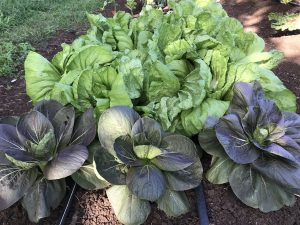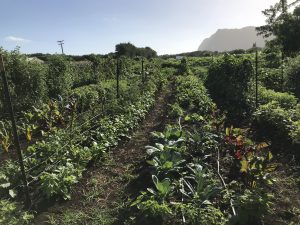The most recent case of rat lungworm was confirmed in Hawaii on January 30 when a Kauai resident had fallen ill while visiting the Big Island in December, according to Hawaii News Now. Although the news about rat lungworm is disturbing, you take precautions to ensure that you and your family are safe from contracting the illness. Keep reading to learn more.
What is rat lungworm disease? How dangerous is it?
Rat lungworm is a form of parasitic worm. According to the Centers of Disease Control and Prevention (CDC), the adult parasite is found in rats, which pass the larvae of the parasite in their droppings. When the waste is eaten by snails and slugs, the larvae are ingested. Humans can become infected with the disease by ingesting raw or undercooked snails or slugs that have been infected by the parasite, or by eating raw produce – like lettuce – that hasn’t been washed properly or was contaminated by snails or slugs.
The effects vary, and can include cold and flu-like symptoms, paralysis, coma and in rare cases, death. Other serious complications such as meningitis, nerve abnormalities and ataxia may also occur. The good news is that there is effective treatment for humans. The CDC says that the common types of treatment are for symptoms caused by the infection, rather than the rat lungworm disease itself. Even without treatment, they say, the parasite will die over time. For more information: Healthline.

As long as you take the necessary precautions, there is no need to stop buying your favorite local produce.
PROTECT YOUR FAMILY FROM THE DISEASE
As long as you follow the tips below – as referenced in the HONOLULU Family and Big Island Now articles – there is no need to stop buying your favorite local fruits and vegetables.
FOOD PREPARATION TIPS
1) Carefully inspect your produce. If your produce has slime trails on it, consider not buying it. Inspect fruit that has fallen to the ground extra carefully, as they could be infected by slugs or snails.
2) Wash all produce before peeling or cutting it. You should always wash the skin, even if it’s a part of the fruit or vegetable you don’t plan on eating, to lessen the chance of contamination.
-
- Use a vegetable brush. Using a vegetable brush to gently scrub the surface of your vegetables and fruits will lessen any chances of infection.
- Keep it clean. As always, everyone should wash hands with soap and water before cooking and before eating. You can even use boiling water to clean the produce to reduce the risk of infection.
3) Cook your veggies. When you heat your food to at least 165 degrees Fahrenheit for at least 15 minutes, it will kill most parasites. Enjoy vegetables by making a stir-fry, roasting them in the oven, making soup or stew or sautéing them.
4) Freeze. Freezing your produce for more than 48 hours will kill the parasites.
OTHER TIPS
1) Don’t drink from the garden hose. Tiny slugs can crawl into the hose opening and can possibly be swallowed if you decide to drink from the hose, according to the Department of Health.
2) Warn keiki not to eat or play with snails or slugs. Young children sometimes like to put things in their mouth, so accompany and supervise them as they play outside. Avoid touching your face, mouth and eyes after handling, and wash hands as soon as possible to reduce the chance of an infection.
3) Boil snails and fresh water prawns. If you decide to eat fresh water prawns or slugs, the UH College of Tropical Agriculture and Human Resources urges you to boil them for 3 to 5 minutes. Freshwater prawns, frogs, crayfish and crabs can also carry the disease.
4) Cover water catchment tanks. Ensure that slugs and snails – even small ones – cannot get in.
5) Hunt slugs. At night, when the slugs come out, go slug hunting and use tongs to pick them up. Drop them into a solution of seven cups of water to one cup of salt for 48 hours. Be sure to wear gloves and footwear, and don’t touch the slugs or snails with your bare hands. Make it into a fun, nighttime adventure!
6) Control rats and slugs. Set up rat traps and slug bait around the perimeter of your garden. You can use pet-safe traps and killers if you or your neighbors have pets.
7) Talk to local farmers. Talk to your local farmers about what they are doing to prevent rat lungworm. You can ask them for tips, ask questions about their methods and address some of your concerns. Many local farmers have years of experience, are a wealth of knowledge and are happy to help. Continue to support local!

Connect with your local farmers and continue to buy local.
Don’t be afraid – continue to buy local
Many of these precautions are things we should be doing in the kitchen, anyway. The awareness of rat lungworm disease can be seen as a constructive reminder to keep a cleanly environment, to diligently check produce and thoroughly wash fruits and vegetables. This is a great opportunity to stay healthy, connect with our local farmers and to continue to buy local.